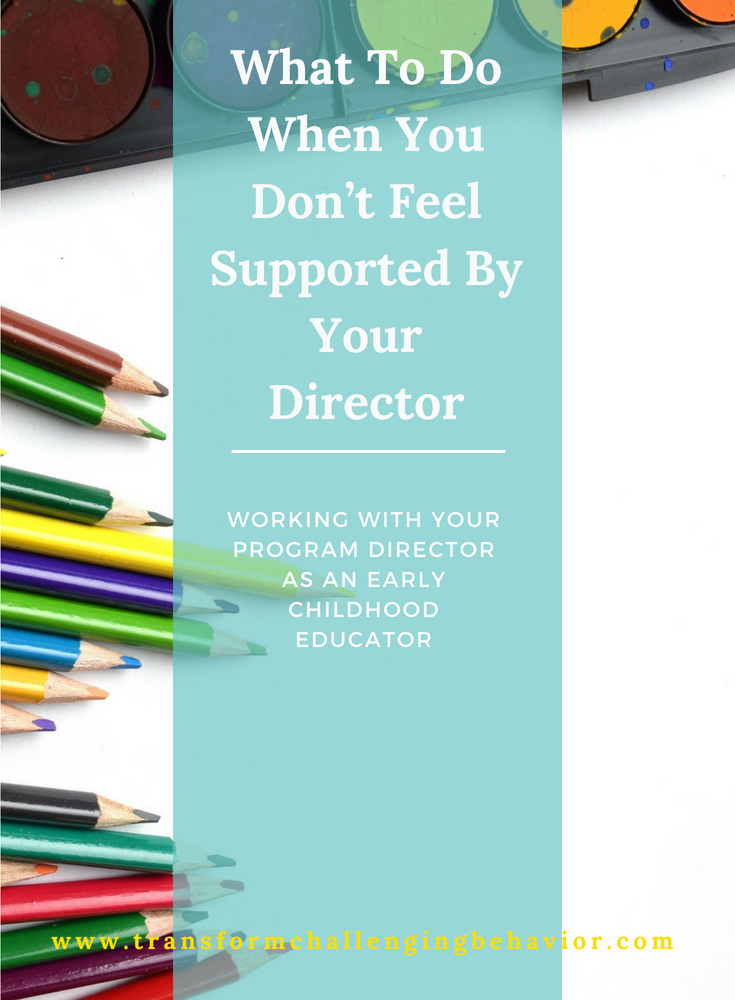As an early childhood educator, have you ever felt that you were not being supported by your director?
Last week I received an email that essentially asked:
What do you do if the difficulty in working with a child exhibiting challenging behavior lies in a lack of support from your director?
Can you relate?
Specifically, if the director seems to make all her decisions about what to say -or not to say- to a family about their child’s behavior out of her fear of losing money if they leave the program.
Our concerned reader went on to make the astute observation that when teachers feel unsupported by the administration it affects the morale of the whole center.
SO TRUE.
I’m not here to rag on directors! But, it happens. And, in some cases you may feel so unsupported by your director that you decide to go on the job market (easier for some folks than others), especially if you feel like the lack of support is pervasive and that it's a toxic work environment.
For today’s discussion let’s assume we’re not quite there...or even if you are there maybe you can use this to make the best of it in the meantime.
First, I do think that much of what I suggested last week in terms of being open to shifting your thinking and approaching your work with a more positive, growth-oriented mindset does still apply whether we are talking about difficulty with a child’s parent or family member, difficulty with a child, or difficulty with a co-worker, your supervisor, or director.
So, how does this idea of shifting your thinking apply, if at all, to the situation when you have a difficult relationship with your supervisor, feel unsupported by your administration, or find yourself in a toxic workplace?
Here’s the thing: a lot of workplaces are sadly not so supportive. This is true in early childhood as well as probably most fields. Some supervisors are downright undermining. Many are just acting out of their own fear.
For me, when I have been in difficult work situations (and almost all of them have some level of dysfunction!) I have found it helpful to start by accepting that this is kinda how the work world works, sadly, whether we like it or not (just like parents and families of children who exhibit challenging behavior are sometimes “in denial” or “or don’t follow through” with our suggestions).
I remember one job in particular where I very quickly felt outraged about certain things that were (and weren’t) happening after being wooed and oh-so-hopeful by the director saying all the right things in the interview. I felt like, “Woah! You’ve got to be kidding me!” I started to collect a mental list of all the things that happened and didn’t happen that I thought were messed up (and which directly defied everything I had learned about in my early childhood coursework!)
Then, a good friend who was also a mentor of mine said to me, “Yeah, that’s how it often goes. What if you accepted the reality of the situation rather than stayed focused on all the “shoulds” about what you think the director should and shouldn’t be doing to support you? Then, see if you can still do some good work there and positively impact the children’s lives?”
“Whaaaaaat!? Where’s my empathy? Why aren’t you outraged like I am?”
And it wasn’t that she wasn’t empathetic or outraged exactly but I guess you could say she was giving me some tough love. I have to tell you that while at first I was annoyed (angry?) with the response it helped me way more than any amount of venting and empathy could have (that can also have its place).
In fact, I was kind of head of the High Turnover, Always-Job-Searching Club prior to this conversation.
She was proposing that I FLIP IT.
Do a re-frame.
Create a new way of approaching my work.
I actually found that from that point forward by accepting that there was a lot of not-so-great aspects of this job that I was able to go into my interactions with people at work in a much more powerful and intentional way. Maybe I was supporting myself by assuming that people would continue to act in their same old (unsupportive) ways. I focused on the things I could change and on the ways I could make an impact not on what my supervisor was and wasn’t doing.
And, although it felt almost like it might kill me at certain moments I worked to build a positive relationship with my supervisor. I wholeheartedly worked to take her advice the best I could, I continued to meet my job requirements, and I went out of my way to chat or connect with her in any way I could in an effort to build some good rapport.
There’s no fairy tale ending to this story.
What my supervisor did never dramatically changed. Sometimes I did make requests and once in awhile she agreed or did things that felt somewhat supportive. The best I can tell is that my having a better attitude and working to build a positive rapport with her did play into those minor improvements.
But honestly, the most noticeable impact was on me and my sanity.
Trying to get other people to be other than who they are or focusing on trying to get others to do what we want them to can consume a lot of energy. For me over time it makes me feel all riled up and not so happy. “In a twirl” as one of my besties calls it (a storm might be more accurate in some cases).
So, I ask you: What do you want to do this school year?
Could this idea of accepting the reality of your workplace - and the support you do and don’t have - help you make the best of this school year? Help you to look for support elsewhere, in places where you might get it?
Now, I have TONS more to say on this. How do you ask for what you need? Why do we fear parents getting upset and leaving the program if we offer resources or suggest an evaluation? How can we build relationships with them and give our professional opinions in a way that won't use them? And, so much more. But let’s start here. Let’s start with you.


